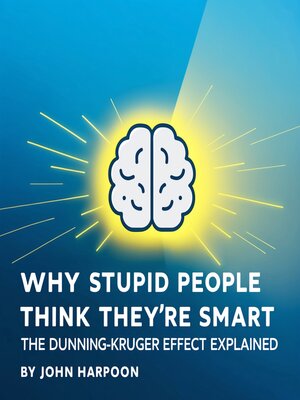Why Stupid People Think They're Smart
audiobook (Unabridged) ∣ The Dunning-Kruger Effect Explained
By John Harpoon

Sign up to save your library
With an OverDrive account, you can save your favorite libraries for at-a-glance information about availability. Find out more about OverDrive accounts.
Find this title in Libby, the library reading app by OverDrive.



Search for a digital library with this title
Title found at these libraries:
| Library Name | Distance |
|---|---|
| Loading... |
The Dunning-Kruger Effect is a cognitive bias in which people with limited knowledge or ability in a certain area overestimate their competence. It is named after social psychologists David Dunning and Justin Kruger, who first identified the phenomenon in a 1999 study. The effect highlights a curious and often frustrating contradiction: those who are least skilled in a particular domain are often the most confident in their abilities. This psychological phenomenon is not just a theoretical curiosity—it has real-world consequences for individuals and society.
At the heart of the Dunning-Kruger Effect is the relationship between self-perception and actual competence. It's common for people to assume that their understanding of a topic or skill is more advanced than it truly is, especially in areas where they have little experience. This overconfidence stems from ignorance: when you don't know what you don't know, you are unaware of the gaps in your knowledge. In fact, research suggests that the less a person knows about a subject, the more likely they are to overestimate their abilities in that area. Conversely, those who are highly skilled tend to underestimate their competence, as they are more aware of the complexities and nuances of the field.
The Dunning-Kruger Effect also underscores the significant role that confidence plays in shaping how we perceive ourselves and others. Confidence is often mistaken for competence, leading people to believe that an individual's self-assurance is a reflection of their skill or knowledge. However, confidence can be a double-edged sword: while it can motivate people to pursue challenges and opportunities, it can also prevent them from recognizing their own limitations. This creates a dangerous feedback loop where overconfidence leads to poor decisions and missed learning opportunities.







